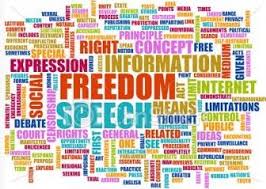
Criminal libel, false news publication, freedom of speech
In the past few weeks, the arrest of Accra FM’s Bobie Ansah, Power FM’s Oheneba Boamah Bennie, and the Executive Director of the Alliance for Social Equity and Public Accountability (ASEPA), Mensah Thompson, has generated debates in both the traditional and social media.
Many have taken a critical view of these arrests.
Advertisement
Others express worry about a seemingly growing unprofessional and unethical journalism that is creeping in the social fabric of the country.
Arrests
The arrest of lawyer and social activist, Oliver Barker Mawuse Vormawor, convener of the social group, Fix-The-Country, for a post on Facebook deemed to be a declaration of a coup d’état, has added to the debate.
While many think that the government’s crackdown on dissenting views is red-handed, others think that there is the need for responsible speech and people must be held accountable for what they write or say.
Repeal
President John Agyekum Kuffuor in August 2001 gave his assent to a repeal of the Criminal Libel and Seditious Laws, Amendment Act, 2001 (Act 602).
It followed calls for the abolishment of laws that could be abused by politicians to target political opponents and people of dissenting views.
This gave freedom to journalists to practise their profession without arrests and incarceration.
The media has expanded since then with social media becoming one of the major means of disseminating information to a wide group of people.
The challenge with social media, however, is that anyone can post anything at any time.
Content posted on social media spreads, and it is practically impossible to pull down false publications that damages, until the harm is done to someone’s reputation or a business concern.
The challenge has been how to juxtapose the three-headed dragon of criminal libel, false news publication and freedom of speech.
This becomes even more difficult when it comes to social media.
On social media, the use of fake accounts, pseudonyms and the anonymity encourages people to spread blatant falsehoods and concoct stories that have no basis.
This is wrong and must not be encouraged. Social media, however, also provides a good avenue for the citizens of a country to speak against the government and its policies.
An example is the controversial E-Levy, which has been rejected by the majority of the citizens.
The government can use views expressed on social media to measure public opinion on issues of national importance, instead of scanning the walls of citizens to find fault with opinions, while devising means of incarcerating people who oppose it.
Rights
Rights go with responsibilities and where our rights begin is often the end of the rights of others.
Right, responsibility
The right to free speech comes with the responsibility of responsible speech. Speech can inflame passions; make individuals rise against one another, cause tribal wars and turn countries against each other.
It is, thus, important that, before we speak, we exercise circumspection, considering the effects of what we say about others.
Freedom of speech does not mean we are free to say everything and anything and go scot-free.
We are accountable for what we say. It is also important that citizens be allowed to participate in the governance of a country through constructive criticisms, debates, and arguments without incurring the wrath of the government.
Criminal libel, which is the publication of a false story against an individual or a group, is no doubt on the rise in Ghana.
The publication of false news against people to defame them especially on social media is commonplace.
However, public officers must be aware that they occupy public office and are thus open to public scrutiny and criticism.
The writer is an English Tutor, Presbyterian Senior High School, Mampong-Akuapem.



